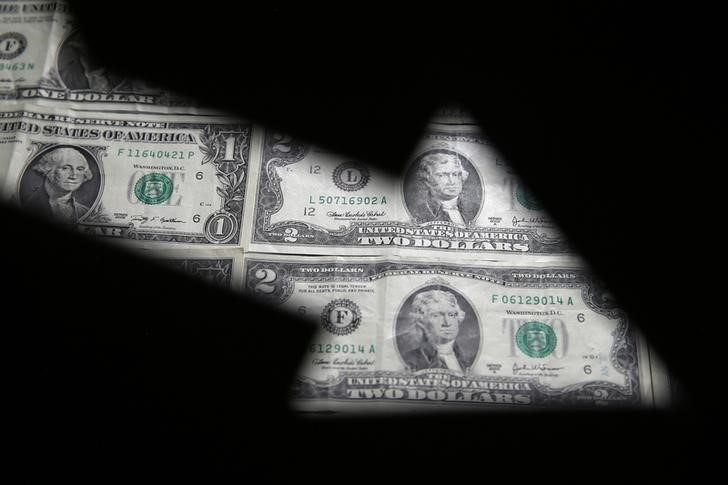By Peter Nurse
Investing.com - The U.S. dollar and the euro stabilized in early European trade Thursday, with traders cautious ahead of a widely-anticipated meeting of the European Central Bank which should signal the tightening of its monetary policy.
At 3:10 AM ET (0710 GMT), the Dollar Index, which tracks the greenback against a basket of six other currencies, traded largely unchanged at 102.545.
EUR/USD edged higher to 1.0716, having traded in a range-bound fashion for much of the week, as traders eagerly await news from the ECB policymakers.
The central bank is widely expected to announce the end of its long-running asset purchase program, while also paving the way for a first increase in interest rates in more than a decade next month.
Hikes of 25 basis points in July and September, lifting the deposit rate from -0.5% at present, is the current consensus expectation. But there is a great deal of uncertainty surrounding the size of any hikes and the pace of the future tightening, especially with inflation currently running at more than four times the central bank’s 2% medium-term goal.
The ECB meeting “will raise the question of why it's delayed tightening and whether a 25bp rate rise in July is a done deal or if there's room for more,” said analysts at ING, in a note.
“Any message that does not signal an openness to a 50bp hike would likely fall short of the market’s hawkish expectations and push EUR/USD closer to 1.0500.”
Central banks around the globe have started to respond to soaring inflation by aggressively tightening monetary policy. The Federal Reserve hiked by 50 basis points last month, as did the central banks of both India and Australia earlier this week.
The ECB policy announcement is due at 7:45 AM ET (1145 GMT), with the press conference following 45 minutes later.
Elsewhere, USD/JPY fell 0.3% to 133.82 after earlier climbing to a fresh 20-year high of 134.54, with the Bank of Japan - the outlier of the central bank world - keeping its accommodative monetary policy to boost a weak economy while the rest of the world starts to tighten.
However, Goldman Sachs maintained its bullish stance on the Japanese currency, seeing two broad scenarios for the yen to strengthen, either soon in a U.S. economic downturn or thanks to a central bank policy shift or intervention.
GBP/USD fell 0.2% to 1.2514, ahead of a speech by British Prime Minister Boris Johnson on making it easier for young people to buy homes, as he attempts to relaunch his leadership after surviving a no-confidence vote earlier this week.
The risk sensitive AUD/USD fell 0.2% to 0.7179, NZD/USD edged higher to 0.6448, while USD/CNY inched lower to 6.6828 after the release of better-than-expected Chinese trade data for May.
